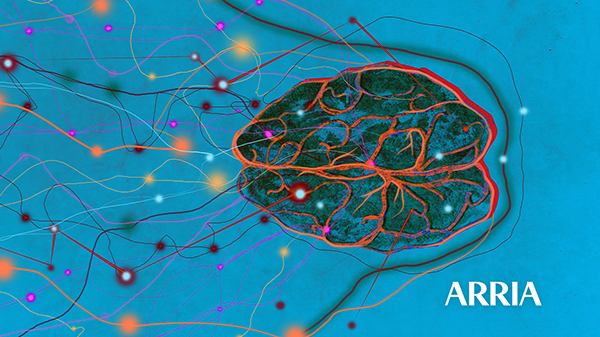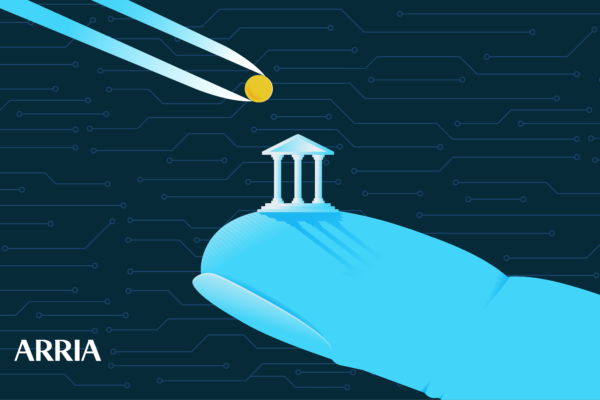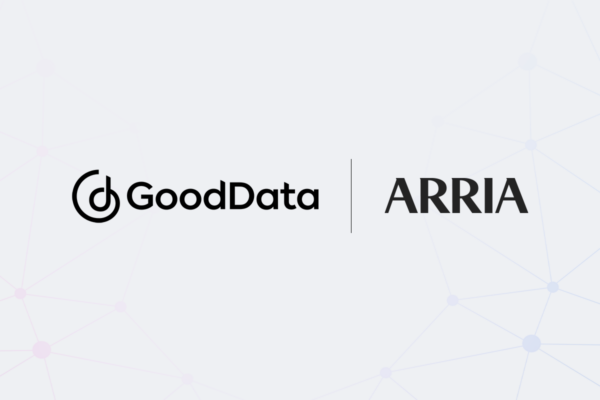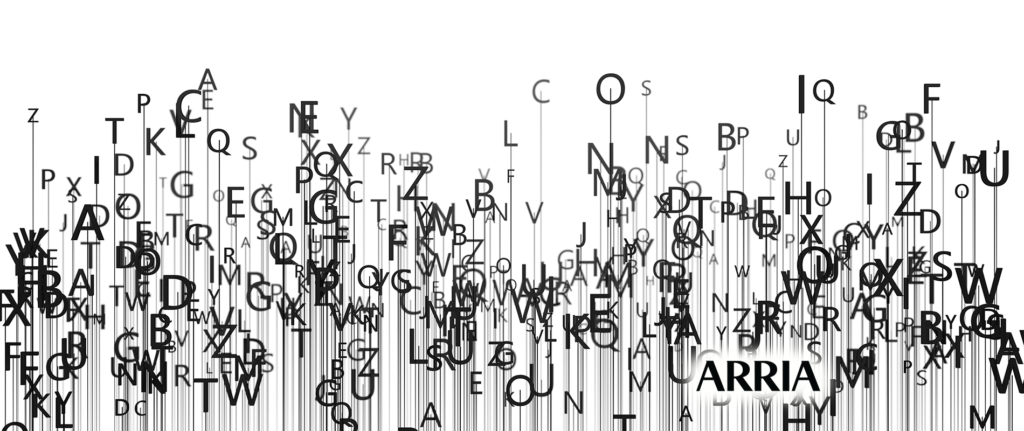
Are you struggling to leverage your data effectively? If you answered yes, you are not alone. 68% of data that flows into enterprises goes unused.
Business leaders need tools to help expedite and scale data understanding. This is where natural language technologies come into play. These technologies are transforming and accelerating the way at which businesses turn data understanding into intelligent action. If you are new to this technology, this guide will help you understand the different natural language automation tools available, how they work, and how they will help companies transform information delivery.
What are the different natural language technologies?
Natural language fields are artificial intelligence (AI) technologies that enable communication between humans and computers in written or spoken language. Natural language technology is comprised of four types of AI, natural language processing (NLP), natural language understanding (NLU), natural language generation (NLG), and natural language query (NLQ). All four natural language technologies work together to facilitate communication between humans and machines in both directions.
This article is meant to serve as a guide to those new to the natural language solutions available.
Natural Language Processing (NLP)
NLP allows computers to process and analyze complex data – it can extract information and insights from data and process it in a way (in code) that a computer can understand. The two main components of NLP are data processing, which involves cleaning and preparing the data, and algorithm development. Natural language processing algorithms can be rules-based, where the system follows carefully designed linguistic rules. Or it can be machine learning based, where NLP is “trained” on data and machine learning algorithms, which modify their response to tasks through training on sample data and continued learning as they process more data. NLP is a critical tool because businesses accumulate and store complex data that need to be prepared and processed. NLP benefits businesses across all industries by:
- Taking unstructured data (e.g., text files, images, audio) and transforming it into structured data (e.g., spreadsheets or data in a relational database)
- Identifying anomalies, outliers, business problems, and opportunities
- Identifying patterns
Business use cases for NLP
NLP is used so widely that the list of use cases is never-ending. Here are a few:
Search Engines
Google leverages the power of Natural Language Processing (NLP) to understand and process user intent. Using NLP, Google can comprehend and classify user queries more accurately, allowing swift delivery of the most relevant results.
Retail
Retailers use NLP to analyze customer sentiment about their products and make better inventory management, product design, marketing, and sales decisions. They also use it in customer service, including conversation chatbots.
eCommerce
Online retailers use NLP to analyze customer behavior and determine what additional products to recommend.
Banking
Financial institutions use NLP to analyze market data, reduce risks, and make better decisions. NLP and other natural language solutions can also assist in financial crime detection.
Insurance
NLP can help insurance companies with data-driven decisions providing insights into customer preferences and usage patterns. NLP can also be used for automated interactions with customers, more accurate risk assessment for underwriting policies efficiently, accurately processing claims faster, and more securely identifying fraudulent claims.
Healthcare
NLP can improve patient diagnosis, treatment, and outcomes by analyzing emails, chat applications, and patient helplines.
NLP has existed for over 50 years and has long been used in medical research, search engines, and business intelligence platforms. While NLP can process and organize this language data in seconds, its value is limited by its inability to understand the meaning of text.
Natural Language Understanding (NLU)
NLU helps computers understand human language by breaking down elements of language and determining intent. By learning syntax, context, language patterns, unique definitions, sentiment, and intent, NLU machine learning models improve over time. While NLP processes data into literal language, NLU will infer what the language intends. NLU is used in the following:
- Automated Reasoning
- Automated Ticketing Support
- Machine Translation (MT)
- Conversational Chatbots
- Sentiment Analysis
- Automated Document Review
Business use cases for NLU
NLU is often used with other NL technologies (NLP, NLQ, and NLG). Here are some examples of NLU in action:
Customer Experience
In this digital age, customers expect instant attention when they have a question or problem. NLU provides understanding allowing for conversational chatbots, automated email responses, Interactive Voice Response (IVR), monitoring electronic communications, document search, and virtual agents.
Automated Ticketing Support
NLU removes the need for manual ticketing by understanding requests and responding quickly. In support departments such as IT or customer service, systems can recognize and prioritize urgent requests and recommend solutions. Support cycles increase in accuracy and speed.
Marketing
Understanding how customers and prospects think about and interact with your brand is essential to creating targeted, successful marketing strategies and campaigns. NLU provides sentiment analysis that tells you how customers feel about your brand – through analyzing social media conversations, reviews, and other online spaces.
Automated Document Review
NLU can analyze complex documents with domain-specific language in minutes or even seconds with accuracy, a task that would be cumbersome and lengthy for a human alone.
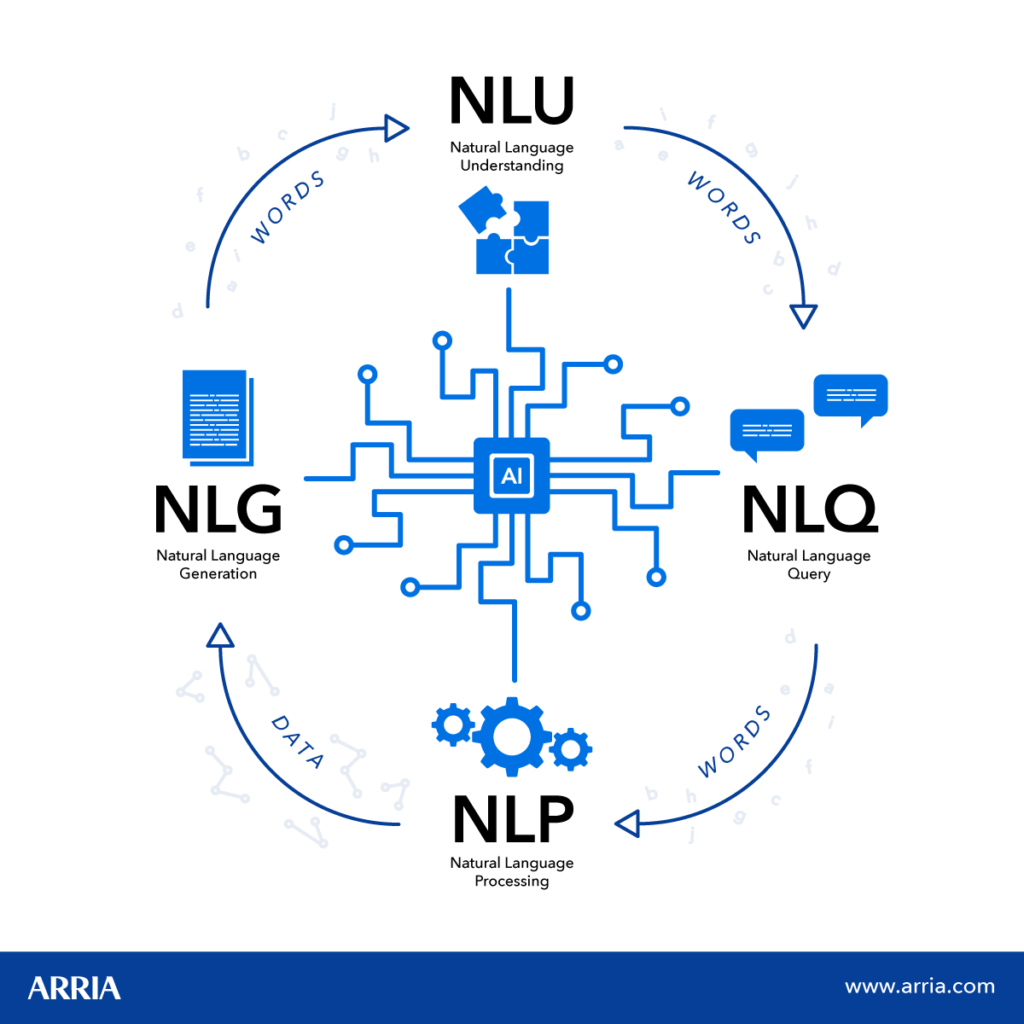
Natural Language Generation (NLG)
NLG generates narratives from data at machine speed to summarize and explain structured and unstructured data. By making complex data understandable, NLG enables the transfer of knowledge from data to humans. This transfer of knowledge accelerates human comprehension and intelligent action. NLG also automates the writing of reports generating significant time savings. It has transformed the way businesses deliver information and democratize knowledge. The list of use cases is vast and varied, as translating data into understandable language is necessary for all facets of business. Here are some prevalent examples :
- Business Intelligence
- Content Automation
- Agent Automation
- Digital Finance
- P & L Reporting
- Investment Commentary
Business use cases for NLG
Business Intelligence platforms
Dashboard visuals are great, but only one-third of users easily understand graphs and charts. Instead, non-expert dashboard users depend on analysts to translate their BI tool’s meaning; these dependents usually include senior management. By augmenting your BI platform with Arria NLG, you receive a plain language explanation of what your dashboard visuals mean, spreading data understanding across your organization.
Insurance
Natural Language Generation (NLG) is used in the insurance industry to automate the creation of written documents such as claims reports, policy summaries, and customer communications. It can also generate data-driven insights and recommendations for underwriters and actuaries. By using NLG, insurance companies can save time and resources while improving the accuracy and consistency of their written communications.
Suspicious Activity Reporting (SAR)
When a financial services company suspects a crime is occurring, they legally must submit the information to the US Treasury as part of the Banking Secrecy Act (BSA) through FinCEN (Finance Crimes Enforcement Network). Instead of manually analyzing data and writing a report, when a suspicious event occurs, an investigator compiles data, sends it through Arria NLG, and receives a comprehensive, auto-generated report.
Anti-Money Laundering (AML)
Arria’s NLG automation for SARs (Suspicious Activity Reports) allows investigators to compile information about suspicious events and use Arria NLG to automate a comprehensive report. By reducing report creation time by 80%, investigators become more effective.
Investment Commentary
Arria’s Investment Analyst uses NLG to mine investment data for insights, anomalies, and implications. It then generates investment commentary with the click of a mouse, and using narrative models, the commentary is customized to emulate your firm’s voice. This frees human analysts to focus on important work, such as client relationships.
Digital Finance
NLG is used in digital finance to automate the creation of financial reports, operational reports, summaries, and other written communications. This can include reports on investment portfolios, financial statements, and market analysis. It can also generate personalized financial advice and recommendations for individual customers. Additionally, NLG can help to improve the user experience in digital finance platforms by generating natural language explanations for complex financial concepts and transactions.
Natural Language Query (NLQ)
NLQ allows humans to ask questions of data , using everyday language as they would when communicating with another human, to find the information they need to make business decisions. NLQ input consists solely of terms or phrases spoken naturally or entered as they would be spoken, without any non-language characters. This capability allows humans to ask questions of their data in a natural way, providing a human experience for interacting with computers.
In the NLP hierarchy of fields, NLQ falls under both NLU and NLG. Most use cases for NLQ involve NLU, because usually, NLQ tools focus on either searching a database for knowledge where the job is to:
- Understand a user’s question
- Transform the question to a search query
- Return a result
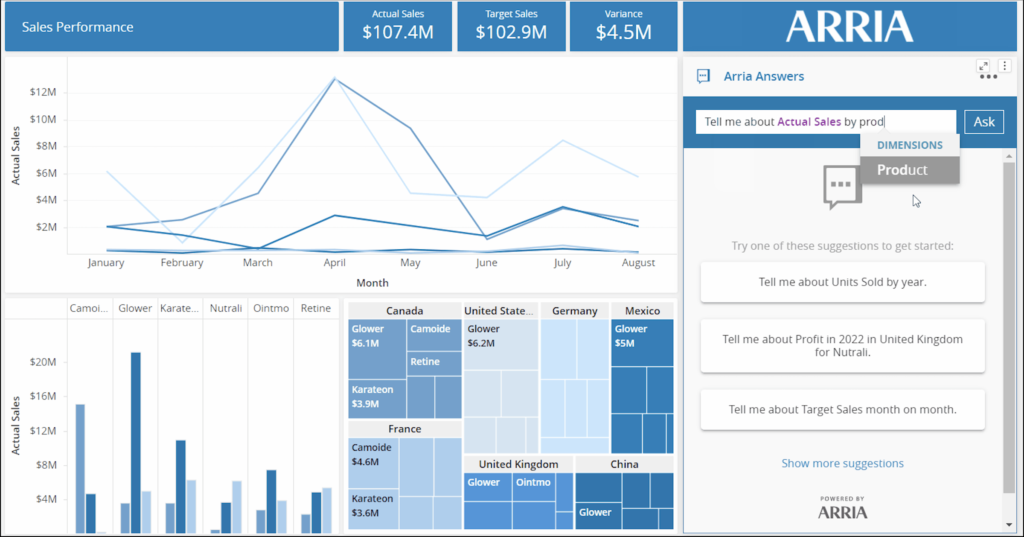
If that result is delivered in written or spoken natural language, then NLG is part of the solution.
NLG transforms the insights identified as salient to the user’s question into understandable language. Arria’s NLQ platform, called Arria Answers, does both the work of understanding the question (NLU) and generating an answer (NLG).
Using natural language processing (NLP) technology, natural language query tools translate typed or spoken terms into data queries via various techniques, such as keyword searching, voice interaction, and interpreting user input.
Examples of NLQ include:
- Conversational chatbots
- Marketing interrogation
- Scripts for SQL
- Arria Answers
Arria Answers is a literal example of allowing a user to ask questions of their data and get answers within seconds.
Business use cases for NLQ
Automated customer service
Chatbots provide quick customer service responses. They allow businesses to be responsive at a lower cost than a human helpline and to provide answers any time a customer has a question.
Marketing
NLG helps marketers understand what is happening within their campaigns. Instead of relying solely on A/B testing result data and visualizations, NLQ allows marketers to ask deeper questions of the data and get a clear answer.
Writing SQL
Data professionals use SQL (Structured Query Language) to access and manipulate data in databases. With NLQ, you can question a database in natural language, have that question translated to SQL, and receive the answer (along with the SQL query used to find it).
Self-service business intelligence
When NLQ is integrated with a business intelligence platform, users can ask questions of their data within the platform. Arria Answers is available in the add-in for all major business intelligence platforms.
Natural language technologies empower businesses to process and understand their data quickly and more thoroughly. If you want to learn more about using natural language concepts to turn your data into strategic intelligence, you can schedule a time on this calendar to speak with an Arria NLG expert.
